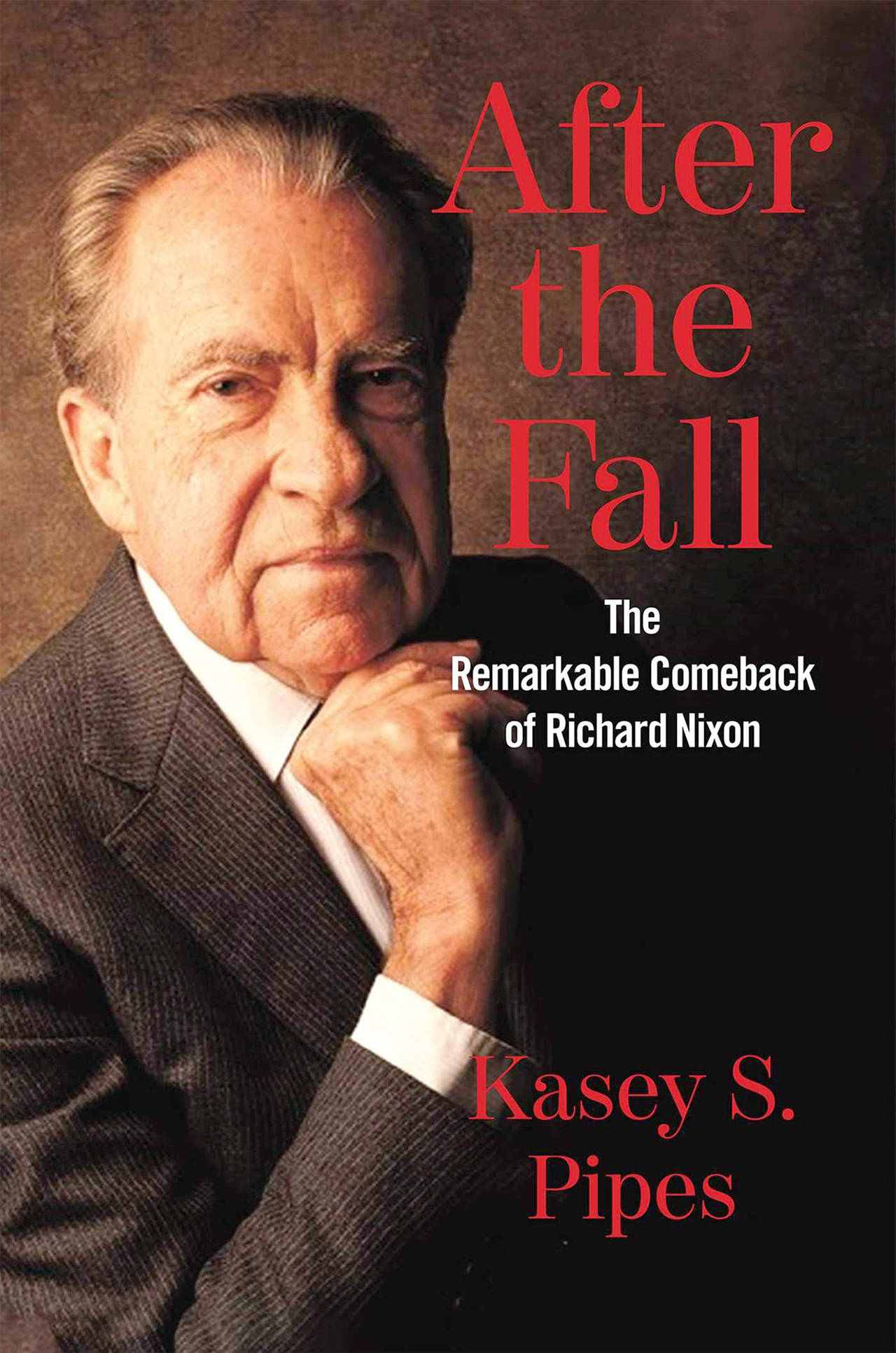By Mac Engel
Fort Worth Star-Telegram
For years they sat in the Richard Nixon Library, waiting to be read, but the former president’s papers from his years after his time in the White House required permission for public consumption.
Nixon’s two daughters had to agree to release their father’s papers from his days after D.C. They were not presidential records, and as such not open to the public.
Fort Worth native and resident Kasey Pipes was the one who managed to gain access to Nixon’s post-presidential papers.
“The pitch was, ‘This has never been done before,’” Pipes said in a recent interview near his home in Fort Worth. “There are countless books on Watergate, his presidency. The rise of Nixon has been well documented. There have only been pieces of his post-presidency years. No one has told the whole story from 1974 to 1994. I thought it was a story that needed to be told.”
The result is “After the Fall: The Remarkable Comeback of Richard Nixon.” The 266-page book starts from Nixon’s final day in the White House, to his death and memorial service in 1994.
This is Pipes’ second book; he previously authored “Ike’s Final Battle,” a book about President Dwight Eisenhower’s account of dealing with race and equality in his presidency.
To delve into Nixon’s post presidential existence took Pipes about 10 years, off and on, and multiple trips to the Nixon Library in Yorba Linda, California. Pipes, who holds a degree from Harvard, is a former speech writer for George W. Bush. He currently runs a consulting firm in Fort Worth.
What he discovered in his research is that the disgraced politician would create the template for all future presidents — influencing policy, and White Houses, in a way few people knew.
“He was way more active than people realize, and more successful in terms of becoming an influencer again, which was his goal,” Pipes said. “He wanted to overcome the spectacle of Watergate, and he wanted to matter again. He helped to shape policy more than we realized.”
Uncovered in Pipes’ research were countless letters to and from future President Ronald Reagan, and, surprisingly, Bill Clinton while the Democrat was in the White House.
Per this book, Nixon influenced multiple White House administrations, primarily on foreign relations. The man had an opinion on everything political, and he was a visionary who foresaw what China has become.
Most prominently, it was Nixon who guided Reagan through his negotiations with the Soviets during the nuclear arms race.
It was Nixon who advised Reagan to have a weekly radio address, which every president henceforth did, save for Donald Trump.
It was Nixon who advised Reagan to dump future President George H.W. Bush as his running mate in 1984.
It was Nixon who wrote: “Mrs. Nixon told me that you were great on the The (Phil) Donahue Show. As you can imagine, she is an expert on politics and predicts that whenever you decide to run for office you will be the winner.” That note was sent to Donald Trump in 1987. It is framed and in the Oval Office today.
“I was surprised at how active he was during the time,” Pipes said of Nixon. “The conventional wisdom was he wrote a few books, made a few speeches, and occasionally talked to a president. What I found was a systematic approach to his work, which he viewed as a full-time job.”
The book paints the picture of a man who did not grasp the enormity, or at least the perception, of his involvement in Watergate. While he calculatedly admitted he “screwed it up,” he could not own what his breach of power meant to the public.
Nonetheless, his expertise and experience became useful to leaders and citizens of the world.
His vision was to re-enter the professional existence that he left when he became a pariah; it was an existence that defined him. Nixon did it through the sheer force of not charm, but his experience and intellect. People wanted his opinions, even if they didn’t like his personality.
“He was miscast in politics; he didn’t have the personality for it,” Pipes said. “It was a different era.”
As the book illustrates, this was a man who had many more years left to live, and to give. He just had to find a willing audience.


